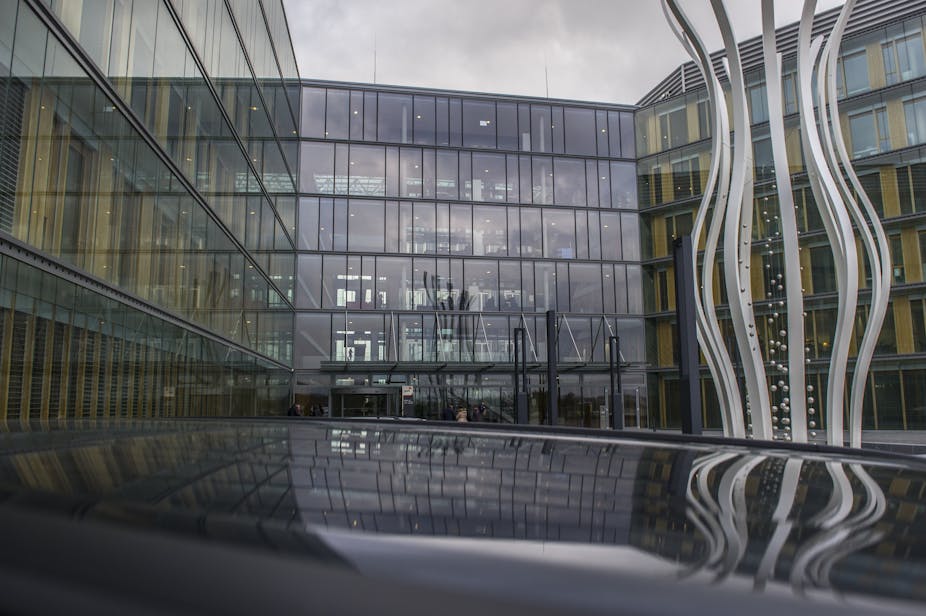All over the world, tax revenues are under relentless attack. With help from accountants, lawyers and financial advisers, corporations are avoiding taxes through complex corporate structures, profit shifting, dubious royalty and management fee programmes.
The latest revelations come from some 28,000 pages of evidence leaked by whistleblowers. They relate to Luxembourg, a tiny principality surrounded by Belgium, Germany and France. It is a member of the European Union and has a population of around 550,000, but no major industry and is not known for any advances in science, mathematics, engineering, electronics or anything else that can generate mass sales, employment or economic activity.
Winners and losers
Globalisation has created opportunities for these microstates to create laws that provide shelter for footloose capital through tax avoidance schemes. They might secure some additional revenue through company registrations and a few jobs for local accountants and lawyers. But beyond that nothing of any economic value is created.
The rest of the world is the loser when certain countries offer these tax breaks, as without tax revenues governments can’t redistribute wealth or provide education, healthcare, pensions, transport, security or the other essential services for quality of life and social stability. The tax base of other countries is eroded, creating prospects of austerity and social strife and their governments should retaliate accordingly to end these practices.
The leaked documents show that around 340 major corporations, including Amazon, Deutsche Bank, Pepsi, Ikea, Accenture, Procter & Gamble, Heinz, Dyson, JP Morgan and FedEx have used the Luxembourg facilities. These companies want an educated workforce and the ability to dump sick employees onto the public purse. They want government subsidies, grants, legal enforcements of contracts, policing, security and much more. But, it would seem, they want to pay as little as possible for all those things. This “something-for-nothing” culture is facilitated by tax such as like Luxembourg and the tax avoidance industry.
The biggest beneficiaries of tax avoidance are corporate executives who boost their profit-related remuneration. Shareholders may get higher returns, but will also end up losing social rights to education, pensions and healthcare. Consumers, however, have not seen the price of coffee, washing powders, soft drinks, baked beans, postal deliveries or vacuum cleaners decline.
The Luxembourg papers show that tax avoiders are aided by big accountancy firms who devise complex corporate structures and schemes. This tax avoidance industry maintains its innocence, claiming all their business is legal.
Well, actually we don’t know if they are, because tax authorities have shown little mettle in taking judicial action. There is evidence to show that a number of schemes which previously masqueraded as lawful have been declared to be unlawful.
Organised hypocrisy
The annual accounts of the tax avoiding companies do not provide any clues about how they reduce their tax bills, but their annual accounts still receive a clean bill of health from their friendly and well-paid auditors. Meanwhile, these companies boast ethics committees and publish glossy corporate social responsibility reports that give the impression they are highly ethical and socially responsible citizens, but provide no information about their tax avoiding practices. Their reports are now part of a cynical impression management exercise.
Big corporations and accountancy firms are engaged in organised hypocrisy. Their internal dynamics are aimed at maximising their profits through things like tax avoidance, whilst soft words in public documents promise good citizenship. These two practices can’t be reconciled – and periodic revelations of malpractice shatter the public image they try to carefully cultivate. The result is public outrage and erosion of confidence in big business.
Rethinking the corporation
There needs to be a fundamental rethink about the nature of the corporation, its social obligations and public accountability. Public scrutiny can be enhanced by requiring corporations to publish tax returns together with related documents, such as the tax avoidance schemes. Those participating in tax avoidance schemes, especially when they are found to be unlawful, should not receive any taxpayer-funded contracts, grants, loans or subsidies. Persistent offenders, including accountancy firms, should be shut down.
The laws relating to taxation need to be changed so that corporations are taxed in the jurisdiction where their economic activity takes place, rather than where they choose to reside or book their profits. Such a system is known as Unitary Taxation and deserves attention. Devised nearly a century ago, at a time when transnational corporations and tax havens hardly existed, the present system of corporate taxation is unfit for the 21st century.

